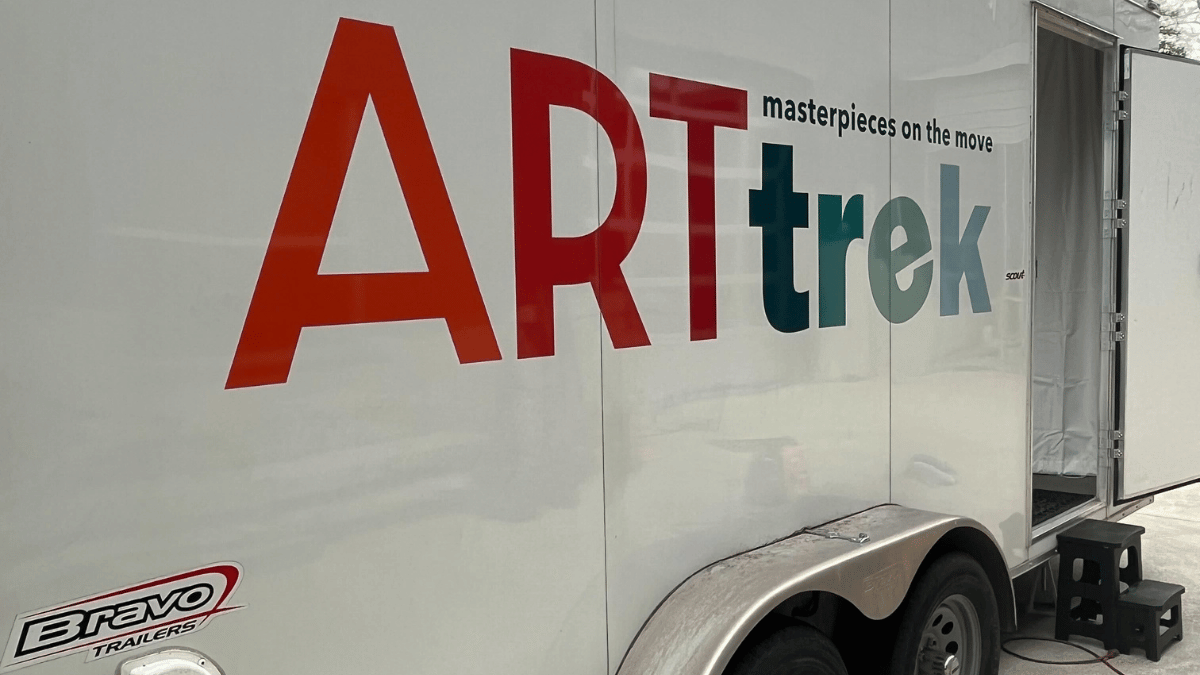It will also be at the parking lot outside Shepherd University’s football stadium April 15 to 16, alongside other student visual art projects.
Senior Abby Bowman came up with the idea of showcasing different kinds of art in a mobile box trailer, dubbed ARTtrek, after talking to one of her professors. ARTtrek is set to show paintings, sculptures and other works made by her and other artists local to the region.
“It’s just all about connecting communities and connecting with our culture overall,” Bowman said. “The box trailer itself will trek through the mountains and connect Appalachian artists together.”
Bowman said she hopes to promote the state’s cultural heritage by introducing more contemporary artists to a wider audience.
“I think our region and our landscapes play a part in that as well, that we’re sheltered in a way from the outside world, which has kept it so rich and so meaningful to each of us,” she said.
The first exhibit on April 7 will showcase paintings of local Shepherdstown monument Shepherd’s Mill, alongside Bowman’s depictions of Appalachian landscapes in quilted sculptures. Works from Shepherd University’s Visual Arts Collection will also be exhibited the following week.
Eventually, Bowman would like to expand the trailer to accommodate emerging student artists across Appalachia.
“I just want it to be an opportunity for any Appalachian artists, whatever their concentration is,” she said. “It’s very hard to get into art galleries and get into shows. You have to pay all this money and it’s very hard especially when you’re a college student already struggling.”
Bowman said she’s trying to organize plans for the trailer to appear at festivals and events throughout the state. Its first appearance is scheduled in Shepherdstown on April 7 and 8 from 1 p.m. to 7 p.m.
